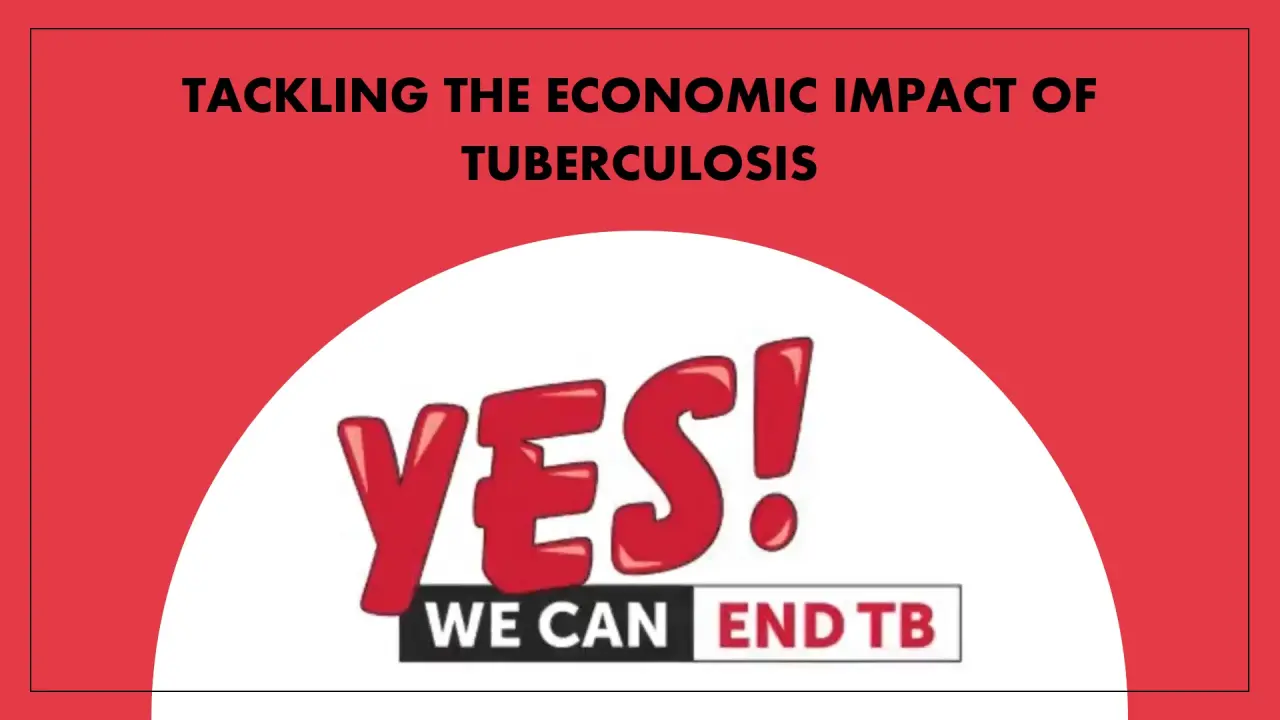Economic Impact of Tuberculosis in India

Written By: Manu Mayank, Head – Social Impact & Sustainability at Humana People to People India
Tuberculosis (TB) exacts a significant economic toll in India, affecting individuals, households, and the nation’s economy as a whole. Despite being preventable and treatable, TB continues to pose formidable challenges, impeding economic development and exacerbating poverty. By delving into the economic dimensions of TB in India, we can better understand its impact and the urgent need for concerted action to address this burden.
The economic burden of TB encompasses direct costs related to healthcare services and indirect costs stemming from productivity losses and premature mortality. According to a report by the World Health Organisation (WHO), TB costs India an estimated $24 billion annually in terms of lost productivity and healthcare expenses. This staggering figure underscores the magnitude of TB’s economic impact on the nation.
Direct costs of TB care include expenses incurred for diagnosis, treatment, and management of the disease. These costs can be prohibitive for affected individuals and households, particularly those already grappling with poverty. According to the Global Tuberculosis Report 2021, approximately 39% of TB patients in India face catastrophic health expenditures, pushing many families into poverty.
Indirect costs of TB are equally significant, primarily attributable to productivity losses resulting from illness, disability, and premature death. TB often strikes individuals during their prime working years, disrupting employment and income-generating activities. A study published in The Lancet estimated that TB-related productivity losses in India amounted to $340 million annually, reflecting the substantial economic impact of the disease on workforce productivity.
Moreover, TB-related stigma and discrimination can exacerbate indirect costs by impeding social integration and employment opportunities for affected individuals. Fear of transmission and discrimination in the workplace further compound the economic hardships faced by TB patients and their families.
- India bears the world’s highest burden of TB, accounting for approximately one-quarter of global TB cases.
- In 2022, there were an estimated 2.8 million incident TB cases in India, with 342,000 TB-related deaths.
- TB disproportionately affects economically vulnerable populations, including the homeless, slum dwellers, migrants, and marginalized communities.
- The economic impact of multidrug-resistant TB (MDR-TB) is particularly severe, with higher treatment costs and lower treatment success rates compared to drug-susceptible TB.
- According to the India TB Report 2021, the economic burden of TB in terms of lost productivity and healthcare costs is estimated to be $32 billion annually, representing a significant drain on the economy.
- According to The Economic Times, the total cost of TB treatment from the onset of symptoms to one year post-treatment ranged from $330-$375 per PwTB, despite free diagnosis and treatment provided by the government.
Efforts to mitigate the economic impact of TB require a comprehensive approach that integrates health system strengthening, social protection measures, and poverty alleviation strategies. Investing in accessible, affordable, and high-quality TB care services is essential for reducing the financial burden on affected individuals and households. Additionally, addressing social determinants of health such as poverty, malnutrition, and overcrowded living conditions is critical for preventing TB and breaking the cycle of disease and poverty.
Furthermore, enhancing TB control efforts through innovative financing mechanisms, public-private partnerships, and community-based interventions can help alleviate the economic burden of TB while advancing progress toward elimination goals. Prioritising TB within broader health and development agendas is essential for mobilising resources, galvanising political commitment, and fostering multisectoral collaboration to tackle this pervasive public health challenge.
The economic impact of TB in India is substantial, exerting profound consequences on individuals, households, and the nation’s economy. Addressing this burden requires concerted action and sustained investment in TB prevention, diagnosis, and treatment services. By leveraging evidence-based interventions, strengthening health systems, and addressing social determinants of health, India can mitigate the economic impact of TB while advancing progress towards achieving health equity and sustainable development goals. As India strives towards a TB-free future, addressing the economic dimensions of the disease is paramount for fostering inclusive growth and improving the well-being of its citizens.
https://www.linkedin.com/pulse/economic-impact-tuberculosis-india-manu-mayank-1dzuc
